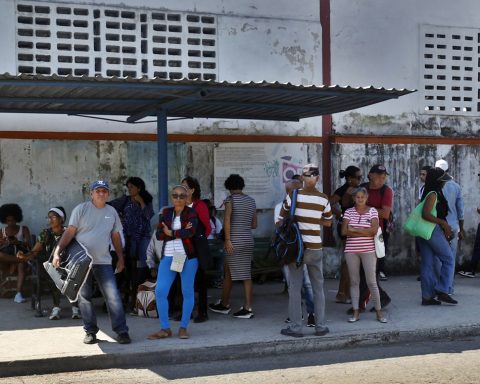The WHO recommended the use of the antiviral paxlovidfrom the American laboratory Pfizer, for coronavirus patients with mild symptoms, but with “greater risk of hospitalization”.
However, the UN body stated “very worried” because, as happened with vaccines, less wealthy countries find it difficult to access this medicine, reported the AFP news agency.
A) Yes, hea WHO also asked Pfizer be more transparent and open about the cost and availability of their pill and expand their license so they can go more generic.
Experts from the WHO, based in Geneva, Switzerland, said today that they “strongly recommend” Pfizer’s pill that combines nirmatrelvir and ritonavir.
“It is the drug of choice” for unvaccinated, elderly or immunosuppressed patientsaccording to an article published in the British Journal of Medicine.
for this same type of patients and symptoms, The WHO issued a “weak recommendation” for the drug remdesivir from the US laboratory Gilead, which it had advised against until now.
Still, paxlovid should be prioritized over either remdesivir, Merck’s molnupiravir pill or monoclonal antibodies, the organization said, which continues to recommend vaccination.
“It is crucial to prevent people from developing a severe form of the disease or dying. And vaccination is a key intervention for prevention,” said the Dr. Janet Diaz, head of the clinical team in charge of the response to the pandemic in Geneva.
Paxlovid “reduces more hospitalizations than alternatives, has fewer potential risks than the antiviral molnupiravir, and is easier to administer than intravenous options such as remdesivir or antibody treatments,” the WHO said.
Recommendations are based on two trials with almost 3,100 patients showing that paxlovid reduced the risk of hospitalization by 85%, AFP added.
The indications are valid for people over 18 years of age and do not apply to pregnant or lactating women. Nor to patients with low risk of complications because the positive effects are minimal.
Experts withdrew from issuing advice for patients with severe forms of the disease due to lack of data.
The WHO pointed out the limitations of these treatments such as the need to be “administered as soon as possible at the onset of the disease”, which requires access to tests and a doctor to confirm the diagnosis and prescribe the medication.
Paxlovid, for example, is administered orally for five days and, most importantly, less than five days from the onset of symptoms.


















